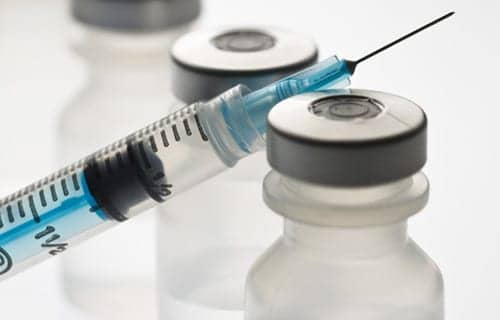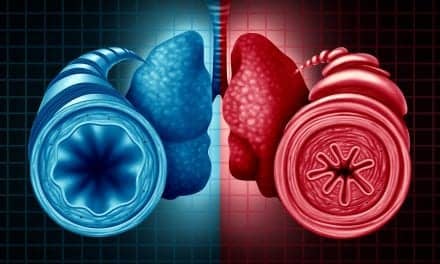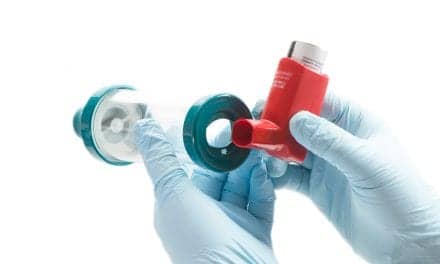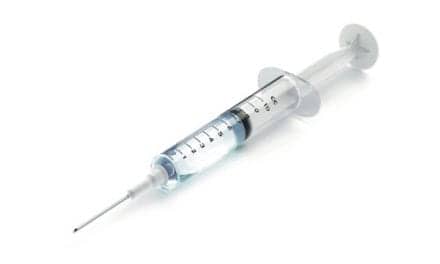GlaxoSmithKline (GSK) reported positive results from two phase-III clinical trials for mepolizumab, a new treatment for severe eosinophilic asthma. If the drug were to receive FDA approval, it would become the first non-inhaled treatment for severe asthma, according to GSK.
The presence of eosinophils (specialized immune cells) may represent a subtype of severe asthma, according to GSK. Asthma is often characterized by an accumulation of eosinophils in lung tissues and raised eosinophils correlate with severity and frequency of exacerbations.
Mepolizumab, which is currently not approved in the U.S. or anywhere in the world, is an investigational fully humanized IgG1 monoclonal antibody, which binds to Interleukin-5 (IL-5)—the main promoter of eosinophil growth, activation and survival—and stops it from binding to its receptor on the surface of eosinophils, according to GSK. Inhibiting IL-5 binding in this way reduces blood, tissue and sputum eosinophil levels.
First Trial
The first phase-III study evaluated the efficacy of two dose regimens of mepolizumab in the treatment of patients with severe eosinophilic asthma.
Patients remained on their current asthma maintenance therapy throughout the study and were randomized to receive either mepolizumab 75mg intravenous (IV), 100mg subcutaneous (SC), or placebo every four weeks.
According to results, the drug met its primary endpoint by producing statistically significant reductions in the frequency of clinically significant exacerbations of asthma compared to placebo:
- 75mg IV: 47%, p<0.001;
- 100mg SC: 53%, p<0.001
The drug did not have an impact on the frequency of adverse events (nasopharyngitis, headache, upper respiratory tract infection and asthma) across treatment groups (The frequency of adverse events was 83% in the placebo group, 84% in the 75mg IV group, and 78% in the 100mg SC group).
However, both mepolizumab treatment arms cut the frequency of serious adverse events nearly in half (7% in the 75mg IV group and 8% in the 100mg SC group, compared to 14% in the placebo group).
Second Trial
In addition, a second phase III study evaluated the use of mepolizumab 100mg SC, every 4 weeks, in reducing daily oral corticosteroid use while maintaining asthma control. The study also met its primary endpoint and showed that patients on mepolizumab 100mg SC were able to achieve greater reductions in their maintenance oral corticosteroid dose during weeks 20-24 compared to patients on placebo (p =0.008), while maintaining asthma control.
In this study, the frequency of adverse events (headache, nasopharyngitis, bronchitis, sinusitis, fatigue and asthma) was 92% in the placebo and 84% in the mepolizumab treatment group. Frequency of serious adverse events was 18% in the placebo group and 1% in the mepolizumab group.
Progress
“This is very positive news for patients,” said Dave Allen, head of GSK Respiratory Therapy Area Unit, R&D. “We now have two studies showing a reduction in exacerbations in a specific group of patients with a severe form of asthma who continue to exacerbate despite treatment with high doses of their current maintenance therapies.”
“For GSK it is exciting that this is the first non-inhaled treatment for severe asthma and we will be progressing towards global filings at the end of the year,” Allen added.
The full results of these studies will be posted onto the GSK clinical study register, clinicaltrials.gov and presented at a future scientific meeting, according to the company.










